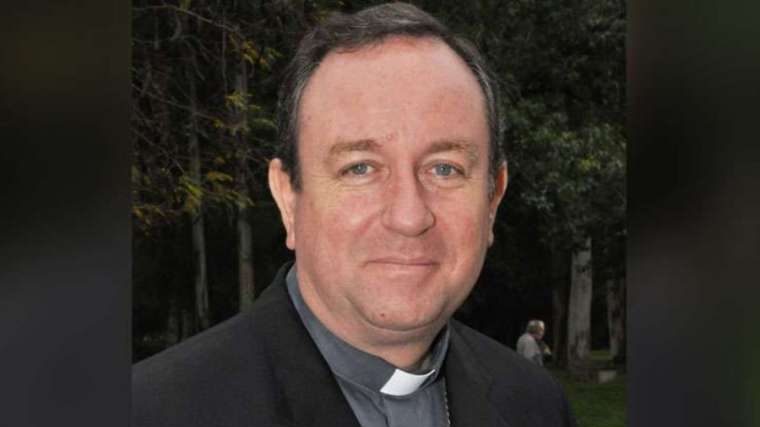On the second day of the trial against Argentine Bishop Gustavo Zanchetta over sexual abuse, a priest testified that he had porn on his phone, while a psychologist of one of the alleged victims testified that the bishops’ behavior “scared and intimidated him.”
As the trial began Monday, Zanchetta, bishop emeritus of Orán, in northern Argentina, denied all charges of alleged sexual abuse.
This is the civil trial against the prelate, who used to boast of his friendship with Pope Francis, with whom he worked at the Argentine bishops conference. Zanchetta was one of the first bishop appointments made by the Argentine pontiff, and led the Diocese of Oran from 2013 to 2017. Following his tenure in Oran, he went to Spain, where he received psychological treatment for undisclosed causes. Later, he was appointed by the pontiff to APSA, which oversees the Vatican’s property portfolio.
According to a statement from the Salta provincial judiciary, Zanchetta, 57, testified that relations with the seminarians were “good” and “healthy.” After explaining what his role had been as head of the diocese, the prelate also claimed that there was “another connotation” behind the claims by the two former seminarians. Referring to the eclesiastical investigation being carried out in the Vatican, the bishop testified that three priests had told him it was “a revenge.”
The Vatican has not commented on the case.
Zanchetta is charged with the crime of aggravated continued simple sexual abuse committed by a recognized minister of religion to the detriment of two victims, identified by the acronyms “G.G.F.L. and C.M.”, the Salta judiciary stated.
Zanchetta also acknowledged having visited the bedrooms of the seminarians “to talk.” He also went to the homes of several seminarians, following invitations from their families. He said it was during one of these conversations that he found out one of the seminarians had been abused by an uncle, and that he had spoken about it with the candidate to the priesthood.
The testimony of the alleged victims were also heard, but without the bishop present in the courtroom.
According to the statement from the judiciary, G.F.L.G. and M.C., “ratified before the Court their statements made in the investigative stage, one of them saying that the priest had made ‘amorous proposals’ and required ‘massages.’”
To preserve the identities of the two accusers, the media are not allowed in the hearings. Close to 40 people have been called to testify, in a weeklong trial that is supposed to close on Friday.
One of the three priests who lodged the first complaints against Zanchetta, Father Gabriel Acevedo, testified on Tuesday that a local church official stumbled upon photos on the bishop’s mobile phone in 2014 showing “pornographic content in which the bishop and some young men appear,” according to the statement from the Salta judiciary.
Acevedo testified that Zanchetta had lent his phone to the official for church administration purposes, and the official showed the lewd photos to Acevedo. This is all information contained in a letter sent to the pope, as first reported on by Salta’s newspaper El Tribuno. The allegations first reached Rome through the archbishop of Buenos Aires, Mario Poli, and then through “official” channels, meaning the apostolic nunciature.
Zanchetta was summoned to Rome after the pope got the information, but was able to persuade Francis that the images were fake.
Acevedo said Zanchetta would visit the rooms of the seminary and stay for dinner, stressing that the bishop shared alcoholic drinks with the seminarians and that sometimes, on Sunday nights, the bishop would ask a seminarian to accompany him to his residence. He said that “several” used to go and “they came back later and were even more drunk.”
There was additional testimony confirming the accused used to ask for “massages” and that his cell phone contained found photos of “pornographic content in which the bishop and some young people appeared”.
Father Martín Alarcón, who was the rector of the Juan XXIII seminary during Zanchetta’s term as bishop of Oran and who is one of the complainants in the canonical trial, testified that the seminarians were “afraid” of him, since the accused went “often” to the seminary, and told them that he was the bishop and that he “could take them out” and buy them expensive gifts, such as computers.
Tuesday began with the remote declaration of a former seminarian, who used to serve as Zanchetta’s driver. He described him as “authoritarian” and argued that both seminarians and priests “were afraid of him.”
He testified that he saw “hugs that were usually from behind and lasted longer than usual, and also the massages” asked for by Zanchetta. The witness also affirmed that he “believed” the accusers.

